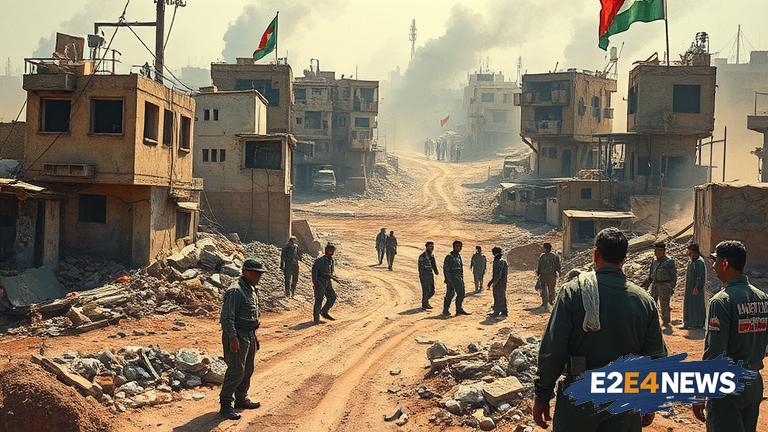The Gaza Strip has been under a crippling blockade imposed by Israel for over 15 years, resulting in widespread poverty, unemployment, and humanitarian crises. According to a scholar, this blockade is not just a security measure, but a politically calculated attempt to dehumanize the Palestinian population. The scholar argues that Israel’s actions are designed to break the spirit of the Palestinian people, eroding their sense of dignity and identity. The blockade has had a devastating impact on Gaza’s economy, with over 50% of the population living below the poverty line. The scholar emphasizes that the blockade is a form of collective punishment, which is a violation of international humanitarian law. The international community has been criticized for its inaction in the face of this humanitarian crisis, with many arguing that it has emboldened Israel to continue its oppressive policies. The scholar notes that the dehumanization of Palestinians is a deliberate strategy, aimed at reducing them to mere statistics and numbers, rather than treating them as human beings with rights and dignity. This dehumanization has been perpetuated through the media, with many outlets portraying Palestinians as terrorists or militants, rather than as victims of occupation. The scholar argues that this narrative has been used to justify Israel’s actions, including the blockade, and to shift the blame onto the Palestinian people. The blockade has also had a profound impact on Gaza’s infrastructure, with many buildings, roads, and utilities destroyed or damaged. The scholar emphasizes that the blockade is not just a physical barrier, but also a psychological one, designed to break the will of the Palestinian people. The international community has a responsibility to act, the scholar argues, to end the blockade and to hold Israel accountable for its actions. The scholar notes that the Palestinian people have a right to self-determination, and to live in dignity and freedom. The blockade is a major obstacle to achieving this goal, and it must be lifted immediately. The scholar argues that the international community must also recognize the legitimacy of the Palestinian struggle, and to support their right to resist occupation. The scholar emphasizes that the dehumanization of Palestinians is a threat not just to the Palestinian people, but to humanity as a whole. The scholar notes that the blockade is a symptom of a broader problem, namely the occupation of Palestinian territory by Israel. The scholar argues that the occupation is a form of apartheid, and that it must be dismantled in order to achieve a just and lasting peace. The scholar emphasizes that the Palestinian people will not be defeated, and that they will continue to resist occupation and to demand their rights. The scholar notes that the international community has a critical role to play in supporting the Palestinian people, and in holding Israel accountable for its actions. The scholar argues that the blockade of Gaza is a test of the international community’s commitment to human rights and dignity, and that it must not be failed. The scholar emphasizes that the Palestinian people are not just victims, but also agents of change, and that they have the power to shape their own destiny. The scholar notes that the blockade of Gaza is a reminder of the power of resistance and solidarity, and that it must be supported by people all over the world.





